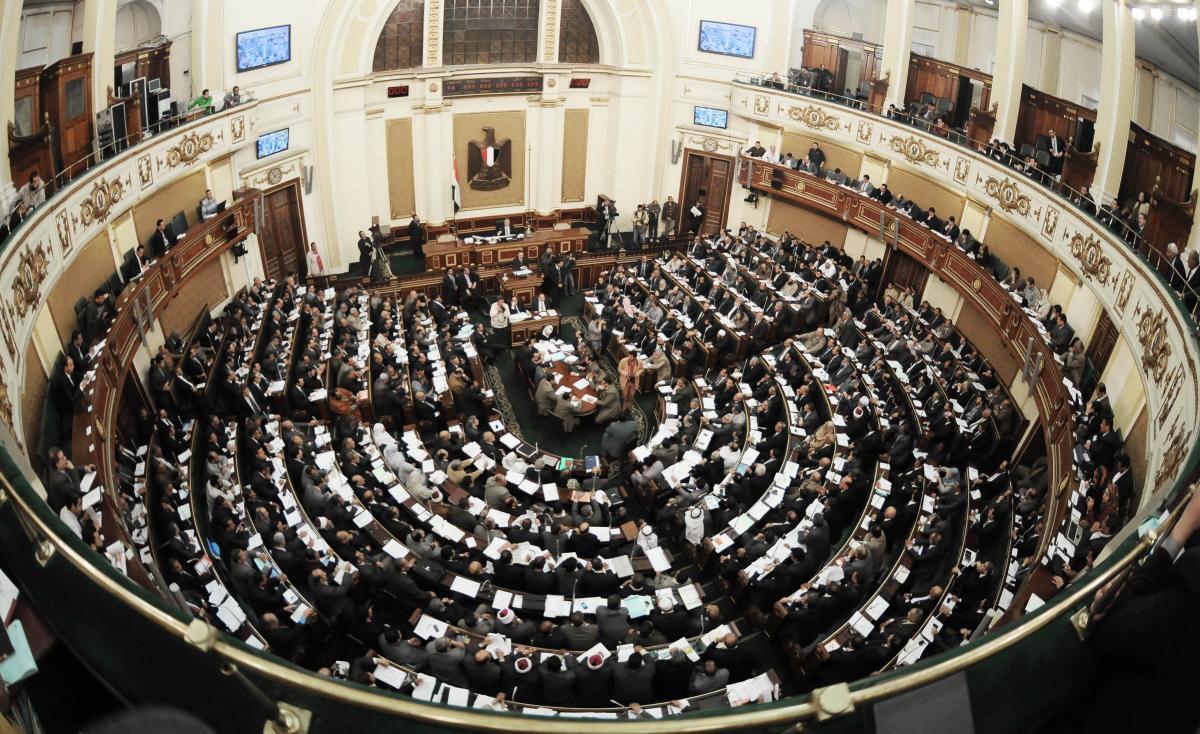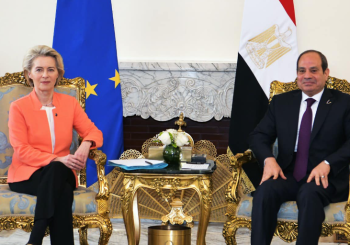Egyptian members of parliament announced they did not believe it is necessary to put to a referendum the recent agreement with Saudi Arabia over the Sanafir and Tiran islands, state media Ahram Online reported.
Following a meeting with President Abdel Fattah Al-Sisi, a number of the MPs referred to Article 151 in Egypt’s 2014 constitution when explaining that the deal only needs parliamentary review, not a referendum.
“The final say on the deal, according to Article 151, should be left to parliament,” said Ahmed Khalifa, the parliamentary spokesman for the Salafist Nour Party.
Hatem Patshat, member of the liberal-leaning Free Egyptian Party, said, “According to the constitution [Article 151], this kind of deal will have to be reviewed and voted on by parliament only.”
The referred-to article stipulates that matters relating to the nation’s sovereignty and territorial ceding must be referred to a public referendum.
“Voters must be called for referendum on the treaties related to making peace and alliance, and those related to the rights of sovereignty. Such treaties shall only be ratified after the announcement of their approval in the referendum. In all cases, no treaty may be concluded which is contrary to the provisions of the Constitution or which results in ceding any part of state territories,” Article 151 reads.
A fierce public debate has emerged following the Egyptian government’s announcement on 9 April that it was declaring the two Red Sea islands of Tiran and Sanafir Saudi Arabian territory after signing an agreement demarcating the two countries’ maritime territories.
Public figures and social media users have criticized the Egyptian leadership for the lack of transparency during what officials said took six years of deliberations with their Saudi counterparts on the issue.
That the announcement came during Saudi Arabia’s King Salman’s visit to Egypt prompted accusations that Egypt was “selling” the islands in exchange for financial support from the wealthy Gulf state.
Hatem Patshat told reporters, “The deal does not state that Saudi Arabia will strip Egypt of part of its land or regional waters, but only corrects a wrong by handing over the two islands.”
Another Free Egyptian Party member, Alaa Abed, accused the media of publishing false claims regarding the agreement.
“I think that all of these poisonous media outlets should stay silent until all the documents related to this deal come to parliament for discussion,” he said.
“The media should not impose its say on the nation or spread unverified information that might harm relations between Egypt and Saudi Arabia.”
Mohamed Hani El-Hennawy, an independent MP from Beheira governorate, agreed, saying, “The media tackled the issue in a very bad way.”
Responding to claims that Egypt was “selling” the islands, Abed continued to say, “The two islands were not given to Saudi Arabia in return for money or economic assistance.”
“The islands were merely left under the control, rather than the sovereignty, of Egypt for security reasons, and now the time has come to put them in the hands of Saudi Arabia, as documents say they are part of its regional waters.”
He stressed that a referendum on the matter is not required. “This does not need a referendum, because this is not a sovereignty issue; it only requires the review of parliament.”
Echoing the government’s initial justification for the ceding of the islands to Saudi Arabia, MP Margaret Azer said, “The presidential decree issued in 1990 on the two Red Sea islands of Tiran and Sanafir is clear that they are part of Saudi Arabia’s territory.”
“The deal… will be an implementation of this decree, and this does not require a national referendum,” she argued.
On his part, Mohamed al-Ghoul, affiliated with the Support Egypt parliamentary coalition, told journalists that “our role as MPs is to thoroughly review this deal, and this comes through entrusting a number of technical and legal experts [with studying the issue] in a scientific way.”
According to Hesham al-Hossary, independent, the deal between Egypt and Saudi Arabia was “marked with transparency and respect for the constitution and state authorities.”
Nour Party member Ahmed Khalifa maintained that “the final say on the deal, according to Article 151, should be left to parliament,” thus ruling out a referendum.
Mohamed Hani Al-Hennawy went further in his critique against the media’s handling of the issue, calling for new legislation regulating media reporting.
“I think the time has come to pass a new legislation that should impose some kind of control on these outlets if we are to safeguard the national security of Egypt,” he said.
However, some MPs called for a public referendum. Samir Ghattas said, “As I understand, Article 151 of the constitution states that agreements related to sovereignty issues must be put to a public referendum.”
Alaa Abdel Moneim, affiliated with the pro-Sisi Support Egypt parliamentary bloc, said he would study all relevant historical documents relating to Tiran and Sanafir.
“If the islands prove to be Egyptian, they will not be given up … if they prove to belong to Saudi Arabia, they will be subject to Article 151 of the constitution, which requires the deal to be voted on in a public referendum.” he said in a Facebook post, according to the London-based, English-language edition of al-Araby al-Jadid.







Comments (0)